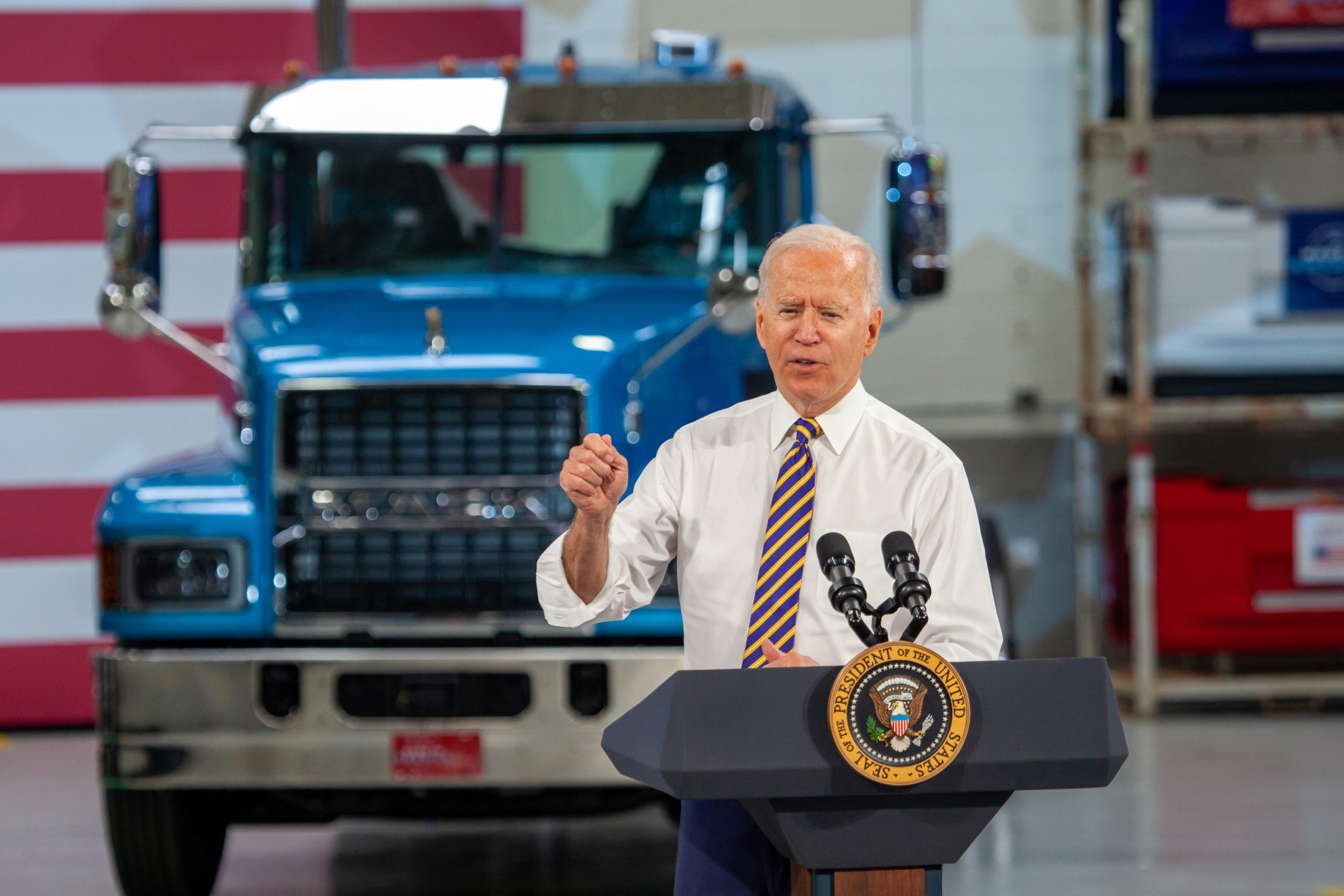
President Joe Biden on Wednesday announced a comprehensive plan to increase United States content in the products the federal government buys and support the domestic production of products critical to America’s national and economic security.
“Today, I’m directing the Budget Office to issue a rule to raise the amount of domestic content required to be considered Made in America from 55 percent to 75 percent,” said Biden during a July 28 speech that followed a tour of the Lehigh Valley operations facility for United States truck manufacturing company, Mack Trucks Inc., which is part of the Volvo Group.
Under current law, “substantially all” of a vehicle purchased by the federal government must be made in America, Biden told attendees at the Mack Trucks facility in Macungie, Pa., where all of the company’s heavy-duty models for North America and export are assembled.
But because of loopholes, ‘substantially all’ over time has come to mean 55 percent of a vehicle must be made in America. “To me, 55 percent is not ‘substantially all;’ it’s barely half,” said the president, who called it “a double whammy.”
“First, 55 percent is not high enough. And second, contractors don’t have to tell us the total domestic content of their products, they just have to tell us that they hit the threshold. Nobody checking,” he said. “Well, they got a new sheriff in town. We’re going to be checking. ‘Substantially all’ is going to mean substantially all.”
And starting with critical products, Biden said that rather than taking contractors at their word that they hit the threshold, the federal government will start making them provide details “so that we can do more to support American manufacturing.”
“We want to be the ones making the innovative parts of every product — the ones that will support more jobs and more small businesses,” he said.
Pennsylvania Gov. Tom Wolf, who joined the president on Wednesday, said that Biden’s plan also reflects his priorities to build and strengthen the economy.
“It will support manufacturers of all sizes, including small and historically disadvantaged businesses; repair and strengthen domestic supply chains; and close loopholes to ensure that more products bought with taxpayer dollars are truly American made,” Wolf said.
Biden also noted that together with a group of 20 Republicans and Democrats, new legislation recently passed requiring South Korea and Taiwan to open up plants in the United States that hire American employees to make needed computer chips.
“In case you haven’t noticed,” Biden told employees at Mack Trucks, “not only you but Ford Motor Company said they’re going to have to stop producing certain vehicles. They couldn’t get the chips.”
Moving forward, the president said he has also directed the Budget Office to create new rules for critical products to support stronger, more resilient domestic supply chains for components like semiconductors, pharmaceutical ingredients, and advanced batteries, among other items.
“Yes, we’ll keep trading with our allies,” said Biden, “but we need to have a resilient supply chain of our own so that we’re never again at the mercy of other countries for critical goods ever again.”
During Wednesday’s visit at Mack Trucks Lehigh Valley operations, Biden learned about Mack’s assembly process, its supply chain, and Mack’s first fully electric Class 8 truck, the Mack LR Electric battery-electric refuse vehicle.
Mack emphasized to the president the importance of strong funding investments in infrastructure for zero-emissions vehicles, as well as for all types of transportation. “We need these types of investments to support American manufacturing’s competitiveness in the global economy and to prepare for innovative technologies like the Mack LR Electric,” Martin Weissburg, president of Mack Trucks, said.
Mack completed an $84 million investment in plant improvements at its Lehigh Valley operations facility last year, which included the insourcing of chassis assembly, the addition of new equipment and a 300,000 square-foot expansion of the facility. The facility currently employs more than 2,500 people and the company plans to hire up to 400 more this year.